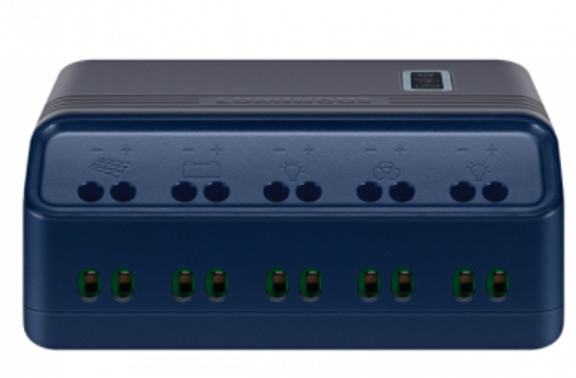views

However, there is still a lack of awareness about the many key components that make up solar power systems, with solar charge controllers being a common example.
While solar charge controllers are available as stand-alone devices in the market, they also come built-in with solar inverters. Nonetheless, the solar charge controller is a crucial element of solar PV systems that most people have little knowledge about. Moreover, many people find it difficult to understand the difference between Pulse Width Modulation (PWM) and Maximum Power Point Tracking (MPPT) solar charge controllers – which this article will address.
But before we move on to the difference between PWM and MPPT solar charge controllers, let’s look at the basics of the device.

Image Courtesy: Luminous
Solar Charge Controller: How it Works, Its Applications, and Features
In simple terms, a solar charge controller is an electronic device used with solar photovoltaic (PV) plants. Its primary function is to manage and regulate the energy being generated by solar panels. It does so by frequently adjusting the current and voltage levels of the battery to prevent overcharging, which is crucial to enhancing the service life and performance of the battery as well as the solar power system.
A solar charge controller carries out its primary role in two ways:
First, it ensures that the solar battery is not being overcharged in the day as energy production is at its optimum. Second, the charge controller ensures that excess power does not transfer back to the PV modules during the night, as it can lead to battery drainage and damage. In addition to its primary function, new-age solar charge controllers are also capable of load control and lighting control.
If we talk about the applications of solar charge controllers, it includes managing power in off-grid and on-grid solar systems, providing backup supply in hybrid solar PV systems, storing Direct Current (DC) in electrical equipment, and much more.
Similarly, a solar charge controller has many features, such as reverse current protection, load control, lighting control, low voltage disconnection, and faster battery charging. However, these features vary depending on several factors, including technology and brand.
The Difference Between PWM and MPPT Solar Charge Controllers
Now that we have discussed the basics of solar charge controllers let’s look at the difference between its two types: Pulse Width Modulation (PWM) and Maximum Power Point Tracking (MPPT).
· Pulse Width Modulation (PWM) Solar Charge Controller
PWM solar charge controllers have been in the Indian market for several years and are still the preferred choice for many. They operate through a direct connection between the panels and the battery bank; however, their efficiency is not as high, as it generally goes up to 65%. As a result, PWM solar charge controllers are budget-friendly, but they are typically meant for small-sized panels/PV systems.
· Maximum Power Point Tracking (MPPT) Solar Charge Controller
MMPT solar charge controllers are equipped with recent technology, making them up to 95% efficient. However, since MPPT is not tried and tested, many people are still hesitant to try out MPPT solar charge controllers. Additionally, MPPT controllers are best suited for large-sized panels/PV systems, but they are relatively expensive.
The main difference between PWM and MPPT solar charge controllers is their technology and efficiency. While efficiency is a crucial factor, it is also vital to consider your budget and power requirements before making a choice between the two options. Moreover, it is best to purchase solar charge controllers from trusted and reliable brands like Luminous, so you know you’re getting your money’s worth. If you’re on the lookout for high-grade and high-performance solar charge controllers, do check out Luminous’ website!












